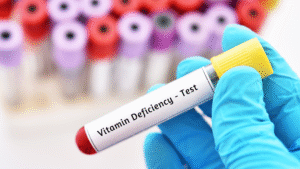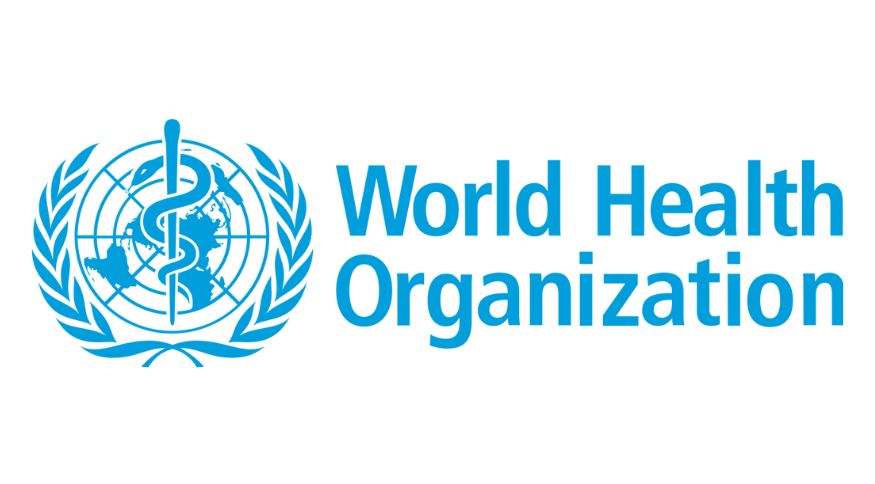
Vitamin D Deficiency in London: Symptoms, Testing and What You Should Do Next
Marylebone Diagnostic Centre
Results within 24 – 42 hours. Westminster residents receive 20% off.
Vitamin D deficiency has become one of the most common nutritional problems in London. Reduced sunlight, indoor working patterns and diet factors mean thousands of people develop low levels every winter. Searches for “low Vitamin D symptoms”, “Vitamin D deficiency women”, and “14 signs of Vitamin D deficiency” increase sharply from October to March.
This article explains the symptoms, causes and testing options available at Marylebone Diagnostic Centre (MDC). It also answers the questions Londoners most frequently ask online.
What Is Vitamin D Deficiency?
Vitamin D deficiency (medical term: hypovitaminosis D, ICD-10 code E55.9) occurs when blood levels of 25-hydroxyvitamin D fall below the normal range.
Vitamin D regulates:
Mood and cognitive function
Muscle strength
Bone health
Immune response
Inflammation
Hormone balance
Energy production
Low levels can affect many systems, which explains the wide range of symptoms.
Symptoms of Vitamin D Deficiency
Search data shows people often ask: “What are the symptoms of a lack of vitamin D?”
Signs vary but commonly include:
Persistent fatigue
Low mood or winter depression
Muscle weakness
Joint or bone pain
Poor concentration
Hair thinning
Frequent infections
Slow recovery after exercise
Morning tiredness
Sleep disturbance
Low appetite
Pins and needles sensations
Back or rib pain
Reduced exercise capacity
These are sometimes referred to as the “14 common signs of Vitamin D deficiency”.
Women may experience specific symptoms such as low energy, low mood during the pre-menstrual phase, difficulty losing weight and sleep disruption.
Can Low Vitamin D Cause Weight Gain?
Yes. Research shows Vitamin D plays a role in:
Insulin regulation
Appetite control
Cortisol balance
Fat oxidation
Low levels contribute to cravings, reduced metabolic efficiency and weight gain around the abdomen.
Conditions Linked to Vitamin D Deficiency
People often ask: “What illness causes vitamin D deficiency?”
These conditions increase the risk:
Digestive disorders (e.g., coeliac, Crohn’s)
Kidney or liver conditions
Obesity
Type 2 diabetes
Autoimmune conditions
Malabsorption
Long-term steroid use
Low exposure to sunlight
Dark skin tone (melanin reduces Vitamin D synthesis)
Working indoors for long periods, common in London, also leads to low levels.
“Weird” or Less Recognised Symptoms
Several symptoms are often overlooked:
Burning sensation in calves
Mood swings
Head pressure or fogginess
Tingling fingers
Lower immunity during winter
Chest discomfort due to muscle weakness
Cold intolerance
Many patients experience these without realising they could be linked to low Vitamin D.
Foods Highest in Vitamin D
People frequently ask: “What food is highest in Vitamin D?”
Some foods contain Vitamin D, but typically not enough to correct deficiency:
Oily fish (salmon, sardines, mackerel)
Cod liver oil
Egg yolks
Mushrooms exposed to UV light
Fortified milk
Fortified cereals
Diet alone is rarely adequate for Londoners during winter.
Who Should Test Their Vitamin D in London?
Testing is recommended for:
Anyone with the symptoms listed
Women over 40
People who spend most of the day indoors
Individuals with darker skin
Office workers
People with low mood during winter
Those with joint pain or muscle weakness
Frequent infections
People taking Vitamin D supplements without monitoring
Many Londoners are surprised that deficiency persists even after taking over-the-counter supplements.
Why a Blood Test Is Essential
Vitamin D cannot be diagnosed from symptoms alone.
A 25-OH Vitamin D Blood Test confirms:
Your exact level
Severity of deficiency
Whether supplements are required
Whether your current dose is effective
Whether symptoms relate to deficiency or another condition
Need for follow-up testing
At MDC, results are delivered within 24 – 42 hours.
Recommended Tests at Marylebone Diagnostic Centre
For a complete assessment we offer:
Vitamin D Blood Test
Checks 25-hydroxyvitamin D level
Reviewed under QC-validated laboratory standards
Fatigue & Energy Profile
Vitamin D
Vitamin B12
Folate
Ferritin
Full blood count
Thyroid function
Electrolytes
Advanced Wellness Profile
All of the above plus:
CRP
Kidney and liver markers
Magnesium and zinc
These profiles help determine whether symptoms are due to Vitamin D deficiency, anaemia, thyroid imbalance or another cause.
Treatment Options
Vitamin D deficiency is easily correctable when diagnosed early.
Treatment may include:
High-strength Vitamin D3 supplementation (dose guided by your blood test)
Daily outdoor exposure where possible
Dietary adjustments
Addressing sleep patterns
Repeat testing after 8 – 12 weeks
Supplementation without testing can be unsafe, especially at high doses.
Why Londoners Are at Higher Risk
Common contributing factors include:
Indoor working
Limited winter sunlight
Air pollution reducing UV penetration
High demand for immune function during colder months
Darker skin reducing natural Vitamin D production
Busy schedules reducing outdoor time
These lifestyle patterns make London one of the highest-risk regions for deficiency.
Why Choose Marylebone Diagnostic Centre
Fast results within 24–42 hours
QC-validated laboratory accuracy
Clinical review and explanation provided
Quiet and discreet clinic environment
Open Monday to Saturday
5 minutes from Baker Street
Westminster residents receive 20% off all profiles
When to Book a Test
You should consider testing if you notice:
Persistent fatigue
Muscle weakness
Winter low mood
Joint pain
Reduced exercise ability
Poor concentration
Frequent infections
Unexplained weight gain
Hair thinning
Poor sleep
Early detection prevents long-term health problems.
Book Your Vitamin D Test in London
Marylebone Diagnostic Centre
73 Baker Street, London W1U 6RD
Tel: +44 7495 970109
Private, fast and reliable health testing in central London.


















